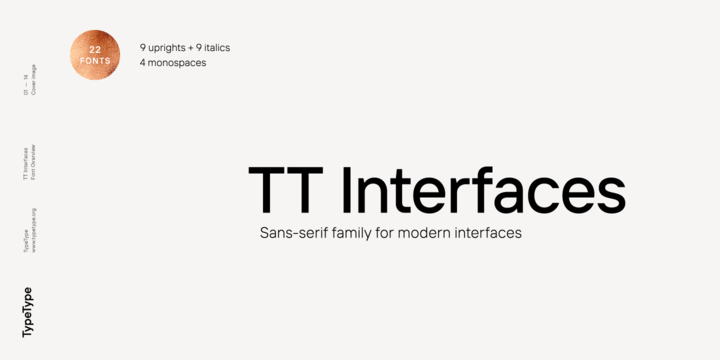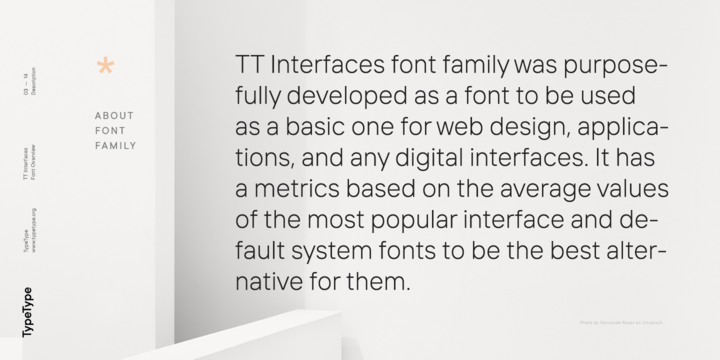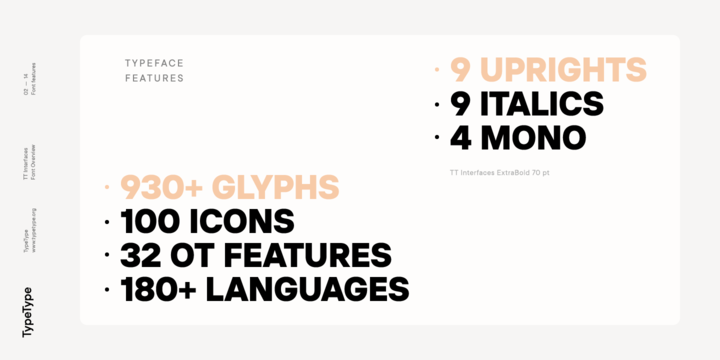Download TT Interfaces Font Family From TypeType

Based on the positive experience in creating typefaces such as TT Norms Pro
and TT Commons, we once came up with the ambitious idea of trying to create
the perfect typeface to work in modern interfaces on most known mobile and
web platforms. We took this project very seriously and, before proceeding
with the design itself, we carried out rather extensive research work.
You can learn the detailed history of the typeface creation in the article
by the link, and here we will tell you what we got in the end. TT
Interfaces consists of 22 styles: 18 styles in the basic family, and 4
monospaced fonts. The main visual features of TT Interfaces include the
open aperture of the characters, the uniform distribution of white and
black, as well as excellent readability. The general neutrality of the font
pattern is not without elegance, and all the details of the typeface are
made with mathematical precision and love. In addition, TT Interfaces has
the most advanced manual TrueType hinting.
The basic TT Interfaces family consists of 18 styles (9 weights and 9
obliques), in each of which there are more than 930+ glyphs. In the
typeface, you can find old-style figures, stylistic alternates,
mathematical signs, as well as 100 universal icons divided into five
thematic groups: basic actions, states, sections of the site, documents and
folders, mobile interface. TT Interfaces supports more than 180 languages
based on extended Latin and Cyrillic, including Bulgarian localization.
TT Interfaces Mono is a complementary family of 4 styles (2 upright and 2
obliques), each of which consists of 740+ glyphs. We intentionally changed
the sign composition of the Mono subfamily—we added special characters to
the encoding and removed everything that was not needed (for example,
ligatures). Although Mono borrowed the basic style-forming aspects of the
main family, for example, the openness of the aperture or the degree of
rounding of the circles, but due to the monospace, it adds some of his own
character. First of all, this difference can be found in the changed design
of signs, in noticeable visual compensators, as well as in italics, whose
design is made in a more humanist way.


Comments
Post a Comment